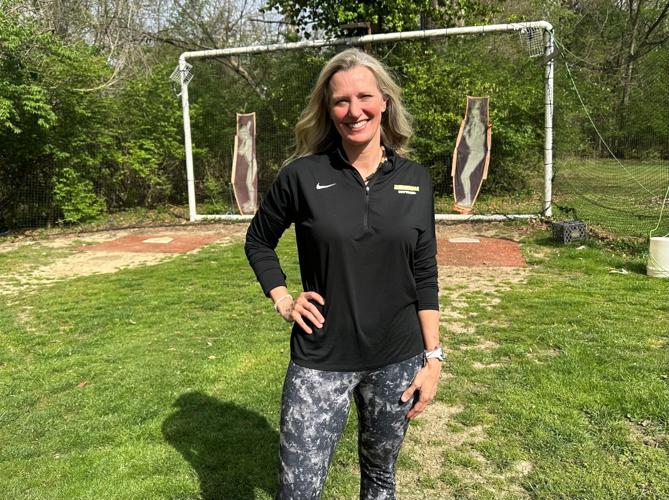BALLWIN — Ask former Missouri Supreme Court Judge Michael Wolff to describe homeowners’ associations, or HOA’s, and one word comes to mind:
Fascism.
That’s more of a personal opinion than a legal one, though it rings true with why Wolff and I were having the conversation.
He was responding to my Sunday column about the battle in Ballwin between Christe Mirikitani, who gives softball pitching lessons in the backyard of her childhood home, and the Country Creek Homeowners Association, which has been trying to put an end to the pitching lessons because of an indenture that limits the operation of a business in homes.
People are also reading…
The column struck a nerve with a lot of folks. Wolff knows why.
“In the American system of government, homeowners’ associations — some of them, not all — are basically fascistic,” Wolff says. “They want to control other people’s property and other people’s lives.”
Most folks who have ever owned a home or condo have a story about their local HOA, from disputes over fences and roof shingles, to run-ins over lawn mowing and backyard sheds. In the past few years, the Missouri Legislature has stepped in to limit the power of HOA’s to, for instance, stop homeowners from installing solar panels.
David Hall sees the Ballwin situation as a dispute over rules. Hall is the president of the Country Creek HOA, and he is leading the charge to shut down Mirikitani’s pitching lessons. He didn’t respond when I first sought comment for my Sunday column. But after it was published, he sent me an emailed statement.
“The home that Christe Mirikitani uses to run her softball clinic at has caused dozens of homeowners to complain and request the Board of Trustees help resolve the matter,” Hall wrote. “The homeowners … are conducting this business in violation of the indenture document.”

In this 2018 photo, Christe Mirikitani high-fives her student, Kristina Szydlowski, 12, at a pitching lesson at the home of Mirikitani's parents, Jim and Judy Boen. Post-Dispatch photo by Tony Messenger.
There is no dispute that Mirikitani is operating a business. Her pitching lessons aren’t free. Whether it’s in violation of the HOA rules, however, is a matter for the courts, if neighbors can’t work things out themselves. That’s what another indenture in the rules, in effect when Mirikitani’s parents bought the home, says.
“Enforcement of any of these covenants shall be by proceedings of law,” the HOA indentures say.
If this is a story about following the rules — as many responses to my column suggest it should be — then does that not apply to both sides of the dispute?
But the HOA hasn’t taken Mirikitani or her parents to court. Instead, it’s trying to change the rules. Hall and his fellow trustees are proposing broad new indentures that would allow the HOA to declare virtually anything the trustees don’t like a “nuisance” and to enforce violations with fines and liens against the property. The proposal will go to a vote of the homeowners.
For much of Missouri’s history, such a change to HOA indentures, one that adds a new “burden” on homeowners, would have been virtually impossible without a unanimous vote of homeowners in the association. That’s because of a 1938 decision by the Missouri Supreme Court. In that case, a Clayton landowner successfully argued that an amendment to HOA indentures made after he purchased his property improperly restricted his rights to develop it.
But in 2019 — more than year after I first wrote of Mirikitani’s dispute — the Missouri Supreme Court in another Clayton case. This time, the court opened the door for HOA’s to amend their indentures and impose new restrictions on homeowners, as long as the original indentures had language allowing changes.
Wolff expects the courts will generally frown on HOA attempts to take advantage of this new ruling if the action restricts homeowners’ property rights.
“If they get to re-define what the contract is after that contract has already been executed, that can be problematic,” Wolff says. “It seems to me the courts are going to become increasingly distrustful of these arbitrary sort of things.”
What that means for Mirikitani remains to be seen. There are at least some homeowners in the neighborhood who believe she should stop offering lessons in her parents’ backyard and instead do so at her own home, a public park or a private indoor sports facility.
And there are others, including the parents of the girls she teaches, who believe those who want to shut down Mirikitani are overreacting to something that isn’t causing harm.
“I’m not sure how (up to) two girls taking a lesson is more disruptive than kids playing backyard tag,” Ashlie Ott, whose daughter is taught by Mirikitani, told me. “I can’t believe that she and her parents have to put up with such nonsense.”
Nonsense or nuisance?
That’s the question Country Creek homeowners will have to decide.
�����Ӱ�ԭ�� Post-Dispatch photographers captured March 2024 in hundreds of images. Here are just some of those photos. Edited by Jenna Jones.











